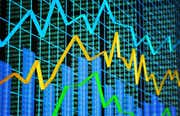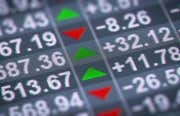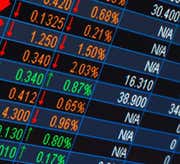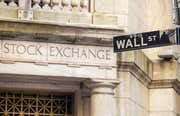
|
While futures trading may not be suitable for everyone, it works for a wide range of investors and traders. One reason futures are so popular is the ability to use leverage – you can enter a position that’s much larger than your “down payment” because of leverage. While this creates the opportunity to magnify your winning trades, leverage also magnifies your losses. It’s important to remember that every time you trade. You will have losing trades – there’s no way around that – but you can limit your losses by always using protective stop-loss orders.
This tutorial introduced the fundamentals of futures, but trading futures (or any other instrument) successfully requires ongoing learning, research and practice. Be sure to do your homework before you start trading futures, and plan on spending adequate time to develop a viable trading plan. (For more, see How to Start Trading.)
Let's review the basics:
- The futures market is a global marketplace initially created as a place for farmers and merchants to buy and sell commodities for either spot or future delivery. This was done to reduce the risk of both waste and scarcity – functions of supply and demand.
- Futures contracts have specifications regarding the price per unit, type, value, quality and quantity of the underlying commodity or financial instrument, as well as the month the contract expires.
- The players in the futures market are hedgers and speculators. A hedger tries to minimize risk by buying or selling now to avoid rising or declining prices in the future. Conversely, the speculator tries to profit by buying or selling now in anticipation of rising or declining prices.
- The CFTC and the NFA are the regulatory bodies that govern and monitor the futures markets in the U.S.
- Futures accounts are credited or debited daily depending on profits or losses incurred. The futures market is also characterized as being highly leveraged due to its margins. It's important to understand leverage when calculating potential profit and loss, as well as the minimum price movements and daily price limits at which contracts can trade.
- Going long, going short and spread trading are the most common strategies used when trading on the futures market.
- Once you make the decision to trade futures, you can trade your own account, have a managed account or join a commodity pool.
- Some of the most actively traded futures contracts in the world are the 10-year T-Note, the E-mini S&P 500 and Crude Oil WTI.
-
 Trading
TradingFutures Fundamentals
This tutorial explains what futures contracts are, how they work and why investors use them. -
 Trading
TradingAdvantages Of Trading Futures Over Stocks (APPL)
We look at the top eight advantages of trading futures over stocks. -
 Trading
TradingTop 4 mistakes that cause futures traders to fail
Learn about common mistakes futures traders make, how to avoid them and what qualities successful futures traders possess. -
 Trading
TradingAn Introduction To Trading Forex Futures
We explain what forex futures are, where they are traded, and the tools you need to successfully trade these derivatives. -
 Investing
InvestingCommodities trading: An overview
Trading commodities can seem challenging to a novice trader but we break it down for you. Learn more about the history of commodities, the types of commodities, and how to invest in them. -
 Trading
TradingForex leverage: A double-edged sword
Find out how leverage, a flexible and customizable tool, magnifies both gains and losses in the forex markets. -
 Trading
TradingHow leverage is used in forex trading
The use of leverage in forex trading is often likened to a double-edged sword, since it magnifies both gains and losses.


